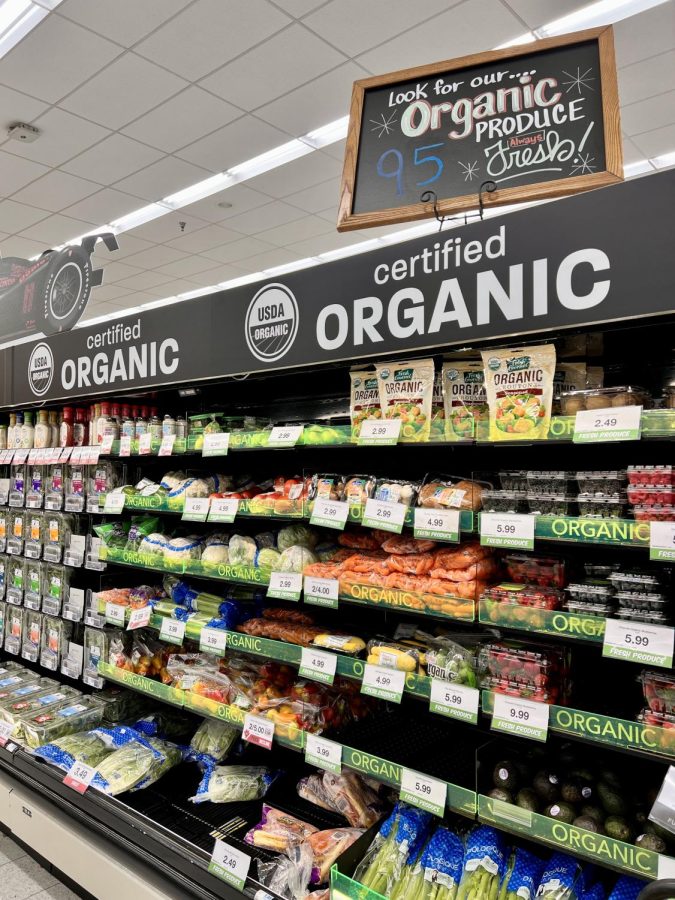As consumers have begun to pay more attention to the foods they are consuming, new farming practices have arisen to meet the varying demands of consumers. Because they are typically marketed as the healthier alternative, organic items have increased in popularity.
When something is organic, it is almost always at a higher price than the non-organic version of the same product. Typically, the word “organic” is seen in the food industry, but anything from body care products to clothing to toys can be labeled as organic.
So what does it mean for something to be labeled as organic?
The term “organic” is defined as food, either derived from plants or animals, produced without the use of chemically formulated fertilizers, growth stimulants, antibiotics or pesticides.
Although the definition of organic states the food is not produced with fertilizers or pesticides, most foods and products labeled as organic are not actually 100% organic.
According to the USDA, “[w]hen packaged products indicate they are ‘made with organic [specific ingredient or food group],’ this means they contain at least 70% organically produced ingredients.”
This can be very misleading to consumers. When companies are able to say their product is made with organic ingredients, they can automatically drive the price of their product up because consumers believe the product is higher quality and they would therefore pay a higher price for the product.
Senior Claire Horsfield shared her thoughts on buying organic. “When I hear that something is organic, I automatically think that it’s healthier and better for you, and I also assume that it will be more expensive too,” Horsfield said. “I think organic things can sometimes be of higher quality, but a lot of the time I think the word is just used for marketing purposes.”
Are organic products of higher quality than non-organic products?
There is not enough evidence yet to label organic products as more healthy than non-organic products or even having any health benefits. However, there is a list of unproven potential health benefits.
Consumers can navigate their way through the grocery store in the best way possible if they do their own research. Fancy labels certified by the USDA can seem enticing, but the label is meaningless if the consumer is unaware of what it really means. Marketing efforts do not always have the consumers’ best interest at heart.
Contrary to popular belief, organic food has yet to be proven to be better or healthier than non-organic food. Consumers must educate themselves on the real meaning behind certain food labels in order to make the smartest buying decisions that align with their personal desires.









Kora Ruff • Mar 2, 2022 at 12:59 pm
This was a really interesting story Sidney! I didn´t know that a product only had to be 70% organically produced for it to be USDA approved. Very misleading.